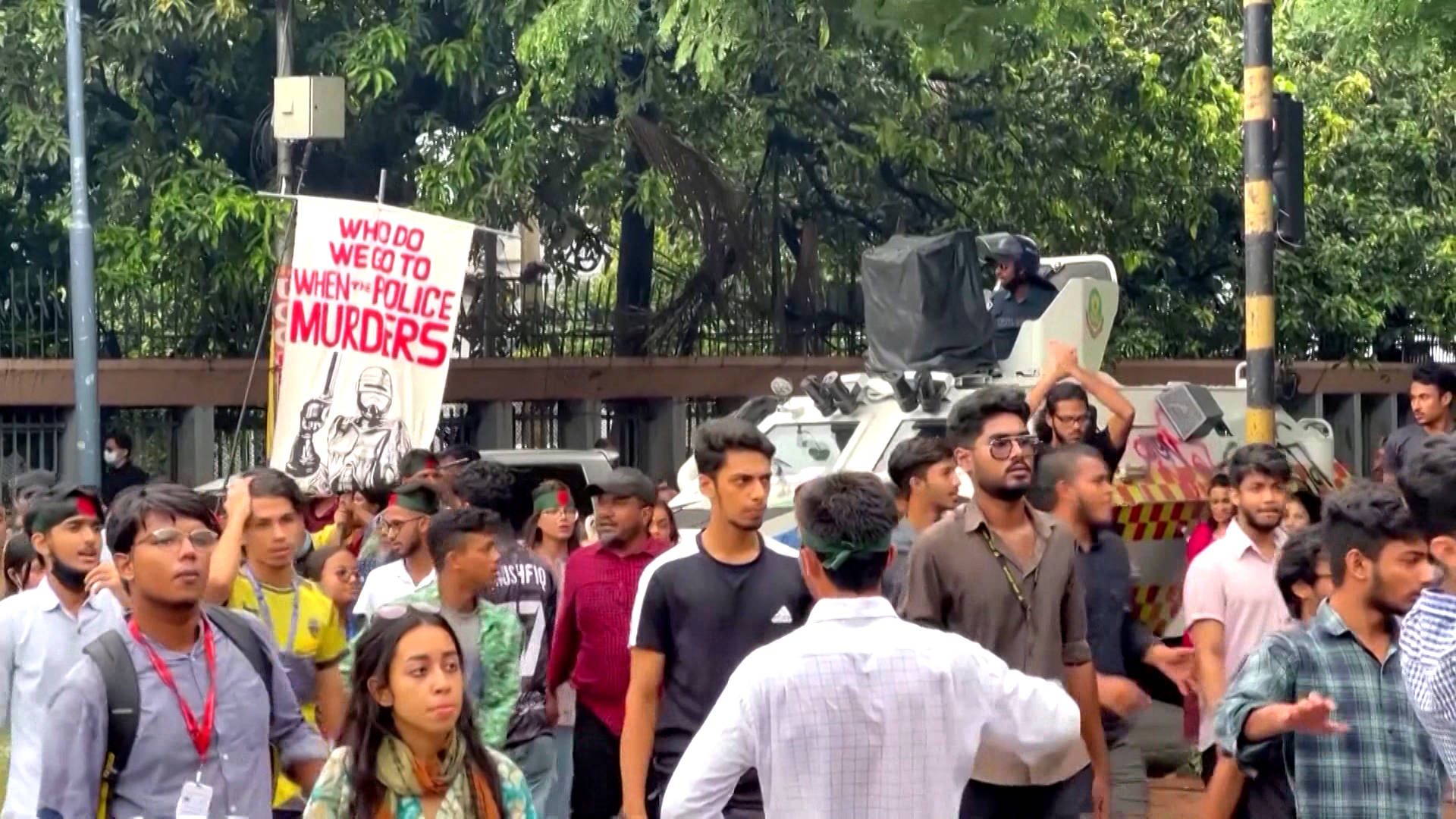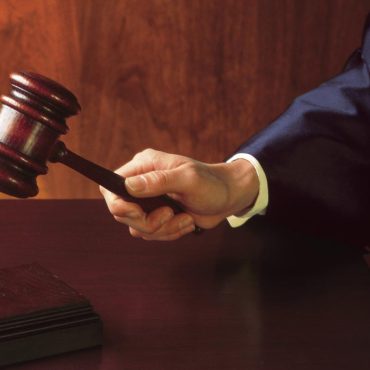This is a rush transcript. Copy may not be in its final form.
AMY GOODMAN: We begin today’s show with breaking news. Bangladeshi Prime Minister Sheikh Hasina has resigned and fled to India after weeks of student-led protests. Bangladeshi’s army has announced an interim government will be formed to run Bangladesh. Earlier today, crowds stormed Hasina’s official residence in Dhaka to celebrate her ouster. Hasina had led Bangladesh since 2009. She also served as prime minister from 1996 to 2001. Her father was Bangladesh’s first president.
On Sunday, police violently cracked down as tens of thousands of protesters took to the streets. Almost 100 people died on Sunday, bringing the death toll in recent weeks to over 300. Most of those killed have been student protesters. Hasina resigned as protesters vowed to defy a military curfew and stay in the streets.
For more, we go to London. We’re joined by Taqbir Huda, Amnesty International’s South Asia researcher, who’s been following all of this very closely.
Taqbir, thank so much for joining us. Explain what has happened in Bangladesh, leading to the final ouster of the prime minister — she has fled to India — and the deaths of hundreds of mainly Bangladeshi students.
TAQBIR HUDA: Thanks, Amy.
So, you know, the most interesting thing is that this started off as a protest for something really innocuous, which was a one-point demand against the quota system that the government had reintroduced. And then, because the government’s heavy-handed response, first by its student wing, which attacked students in Dhaka University and then in the hospital, and followed by the heavy-handed response by the security forces, it became a much wider movement.
But even as recently as, you know, 20th July, when scores of people were killed, the protesters weren’t calling for a resignation. They called for resignation of two high-level ministers. Even then, the authorities kept on cracking down on them. It’s only on 3rd August, two days ago, that the protesters officially mobilized with a renewed one-point demand, which was the resignation of the prime minister. And it is amazing to see that they have materialized that demand in less than two days.
And this just goes to show, if they had only sat with the students when they were peacefully protesting, all of this bloodshed could have been avoided, and this wouldn’t have been the turnout. But they didn’t, and so the students remained resilient and, you know, put the final nail in the coffin.
AMY GOODMAN: And they are still protesting in the streets right now. Can you explain the shift in the role of the military, first serving Sheikh Hasina, the prime minister, and now saying that they’re going to hand power over to an interim government?
TAQBIR HUDA: Yeah. So, there was a perceptible shift in the role of the military, who, in the initial spate of the killings, did implement the shoot-on-sight curfew orders. But when the protests resumed earlier this week — sorry, earlier last week, they seemed to have played a neutral role, where they weren’t really opening fire, but they weren’t also protecting the student protesters, either, which is very different from the police, which have consistently executed the wishes of the executive. And this is because the police is far more partisan than the army. But right now, given Bangladesh’s history with military dictatorships in the first 20 years and followed by a military caretaker government which last came in 2007, it’s really important to stress that, you know, this must be a time-bound measure that is only necessary until the publicly accountable form of governance can be reintroduced in Bangladesh.
And I’ll just add to this that there is a highly militarized region in Bangladesh known as the Chittagong Hill Tracts, and that must always be in the forefront of our concerns, because that remains the most militarized region in Bangladesh, and the people there, who are primarily Indigenous people, remain living in highly deplorable, unsecuritized conditions.
AMY GOODMAN: Taqbir Huda, I want to thank you for being with us. We’re going to continue to talk about this tomorrow on Democracy Now! as developments take place. He is Amnesty International’s South Asia researcher.
Next up, as tension rises over the contested results of Venezuela’s presidential election, we’ll host a debate with sociologist Edgardo Lander in Caracas and Nina Farnia, who was an election observer in Venezuela with the National Lawyers Guild. Then, a bombshell Washington Post investigation. Did Donald Trump take a $10 million bribe from Egyptian President Abdel Fattah el-Sisi days before Trump took office? We’ll speak with the Washington Post reporter who broke the story, Carol Leonnig. Stay with us.
[break]
AMY GOODMAN: “Kotha Ko” by Bangladeshi artist SHEZAN, one of the many new songs that are the soundtrack to the protests in Bangladesh.











Post comments (0)